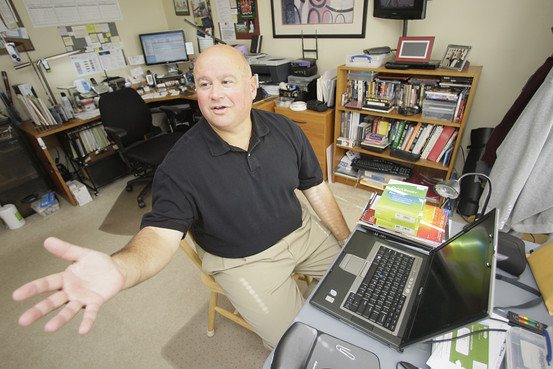
Disclosure: I am a Yahoo shareholder.
Last week Yahoo CEO Marissa Mayer declared remote workers obsolete at the portal company. You can read all about the decision if you simply do a search on “Yahoo remote workers” and read until your heart is content.
About 15 years ago in Silicon Valley, it became possible to work outside the office environment effectively due to an increase in bandwidth, better mobile devices (laptops and phones primarily,) and a move toward software as the primary workspace for innovation. In the right circumstances, work from home (WFH) is a powerful tool that unleashes creativity, boosts productivity, enables a company to tap into talent that wouldn’t be accessible under normal “office” rules, and allows the company to save big $$$ on real estate and associated costs by having a smaller work space dedicated to staff.
Sun Microsystems was an early proponent of WFH and “flexible offices” where an employee could become essentially a floater and choose to work where they like. Options included full home office setups, the coffee shop, on the road, or in special on-site hotel-like environments where work space could be reserved for a temporary stint. Things have progressed since then with actual working video conference software, online collaboration tools, etc. and companies, large and small are depending upon WFH as a tool to help grow their business.
But WFH is not all puppy dogs and rainbows, there is a tradeoff. As worker and work are distributed, one loses a “center” and “community” associated with the joint activity in question. Serendipity of ideas drop steeply. The cultural aspect of the organization is strongly diluted or potentially lost.
Earlier on I said the circumstances have to be right for WFH to make sense. There are 3 aspects to the circumstances: the worker’s capability, the requirements of the job, and the state of the company.
Let’s start with the worker. An ideal candidate for a WFH worker is competent, confident, and independent. This worker does not heavily rely on others to learn on the job or teach on the job. This worker has the self-discipline to create structure and boundaries between their personal and professional lives and is not a “high touch” / “think out loud” kind of person in their work habits. The person is happiest when working independently and is highly productive in that mode. Many information workers fit this bill exactly.
Even if the worker is an ideal candidate, the role must also be conducive to WFH. Ideally, the role would require minimal physical interaction with others to begin with. The content of the role enables the worker performing the job to be largely successful through the fruits of their own labor. The results delivered by the role are tangible in some way – measurable minimally – and form the basis for judgment in the relative performance of the person in the role. Visibility requirements of the person performing the role should be minimal. Interaction required by the role should be manageable via technology – audio/video conference, web meetings, mail, etc. Many information technology roles fit this requirement.
Finally, even if the worker and the role are right, the company must be in the right state for WFH. If the company is in a fundamental transition or has high uncertainty, it’s tough to be remote and still be connected as the company navigates the changes. If the company is shrinking or failing, it’s tough to be remote and help change the trajectory. If the company has allowed “retirement in place” or has hired and/or retained a disproportionate number of “B” players, WFH is a death knell and will accelerate the deterioration of the company and its prospects.
If any one of these circumstances of worker, role, or company is not right, one misses the benefits of WFH and still experiences the downside of WFH.
Despite all the ink about how Ms. Mayer’s decision is regressive and will hurt Yahoo, I think she is being realistic about where the company is in its lifecycle and is taking steps to transform it from where it is toward a better future. There are sure to be negative effects from the decision. Yet in balance, I believe she is making a tradeoff to avoid the downside risks of WFH while refocusing the company and moving toward a turnaround.
No one likes it when freedoms previously available are taken away, especially those employees affected by decisions like this. But when the choice is same speed and trajectory leading toward no employment vs. unpopular decisions that make survival at least possible, I believe it’s important to acknowledge the difficult choice and support the leaders driving the change.
As a fractional owner of Yahoo, this decision is the latest data point that demonstrates to me that Ms. Mayer is serious about changing the prospects of the company and reaffirms my decision to hold a long position in the company.




